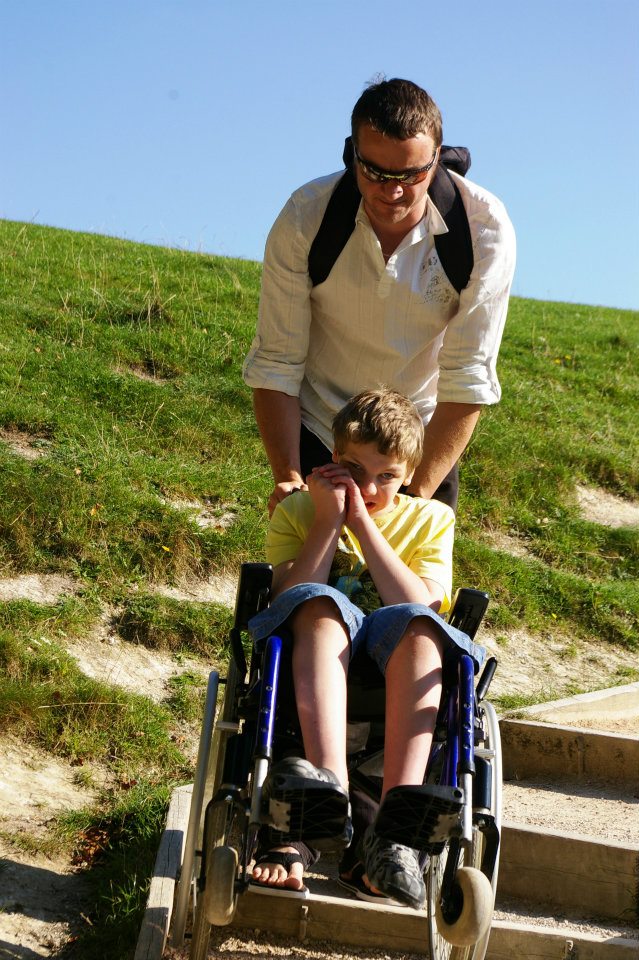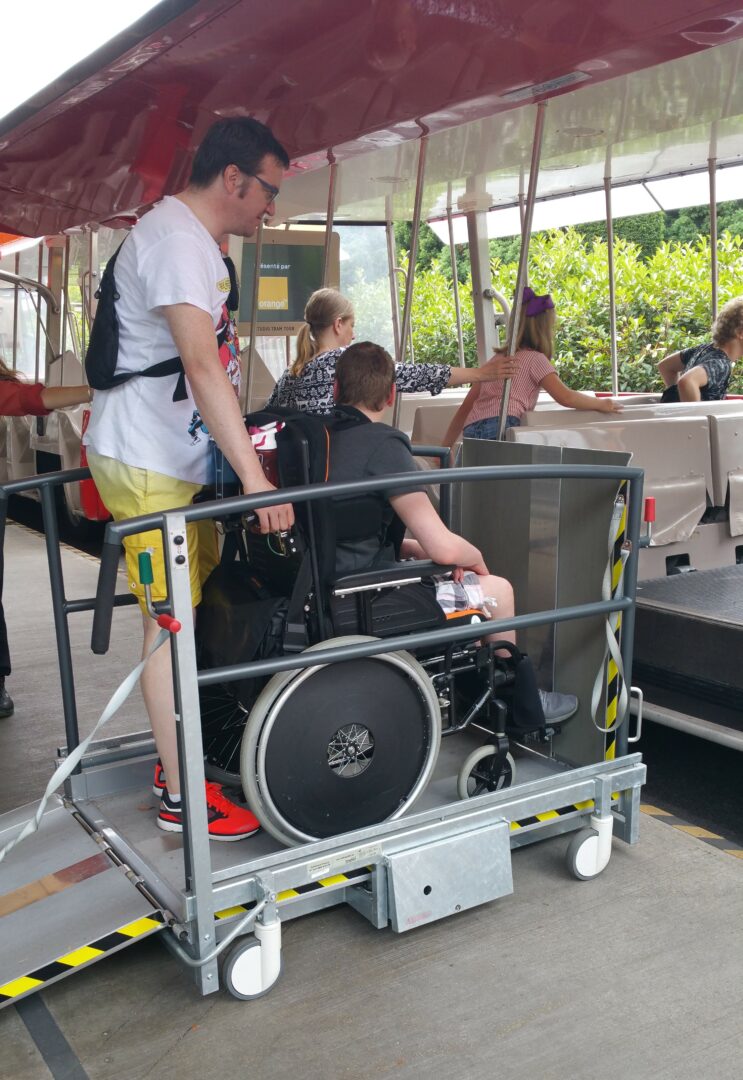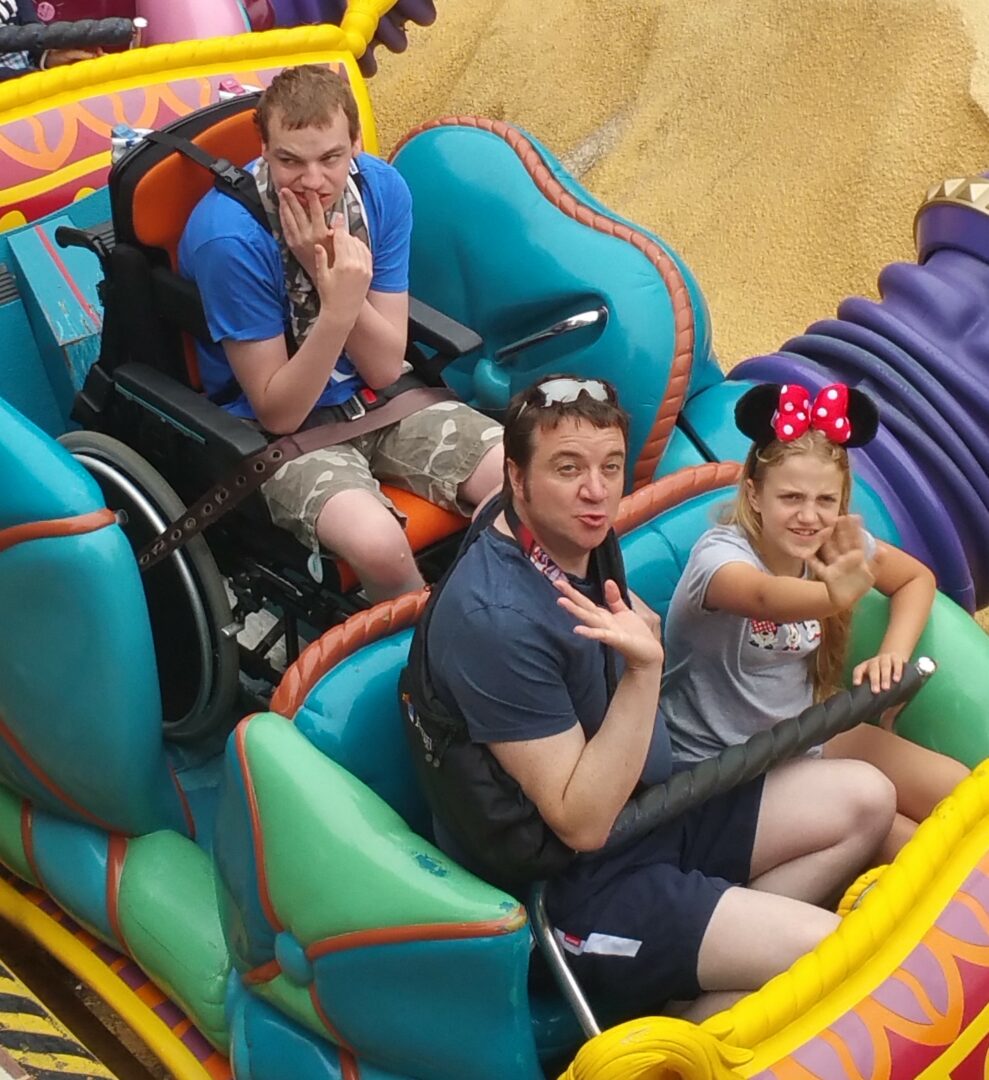Who would argue against everyone being treated the same?
Well, I would actually. I don’t like equality. Treating everybody exactly the same way sounds like a good idea, but when you suddenly find yourself disadvantaged or excluded because “it’s the same for everyone,” then you realize that at best, it is a lazy way to appear to be fair and at worst, it creates discrimination and exclusion. It is my personal experience that, sadly, people frequently use equality as an excuse to not make the extra effort needed to include someone in certain circumstances or someone with particular needs.
My eldest son, now an adult, has profound multiple disabilities (PMD) and as a family we battle prejudice, discrimination and exclusion every single day.
Following are a few situations we have experienced:

We had booked tickets to a show at a local theatre. The few wheelchair-designated spaces were sold out, but because we can transfer my son from his wheelchair to a seat, we booked seats at the end of an aisle. When we arrived at the theatre, we were told that they didn’t allow wheelchairs into that section because they wanted to keep the passageways clear. “We don’t allow pushchairs or prams either. Everyone must walk to their seat. It’s the same for everyone.”
We wanted to book a family photoshoot. The company explained that we needed to pay in advance and that this was not refunded if we cancelled within a day of our appointment. We explained that my son has epilepsy and regularly had seizures, so there was a quite a high chance he would have a seizure that day and we would not be able to attend. “There’s nothing we can do – it’s the same for everyone,” we were told.
We were staying at a holiday resort. The main evening entertainment was on the first floor of a building. There was only one lift with space for just one wheelchair. The problem was that when the building opened for the evening, everyone would rush in, run up the stairs and occupy all the seats and tables, so anyone with a wheelchair could never sit anywhere near the stage – if they could find a space at all. When we complained, we were told, “It’s the same for everyone. It would be unfair to everyone else if we let wheelchair users in first.”
In each of these cases, my son was severely disadvantaged because of a rule that was applied rigidly to everyone. In each situation, however, a simple reasonable adjustment could have been made so that he had the same opportunity as everyone else.
Of course, it’s not just people with disabilities that can be denied opportunities because of equality. How about:
- “Everyone must write their name and provide proof of their address to vote.”
- “To join this club, you must be registered to vote in the local area.”
These exclude travellers those who are homeless or those with an inability to write.
- “No one is allowed to be away from work for more than two weeks.”
- “Working hours are strictly 8:00 a.m. to 5:00 p.m.”
- “Everyone must attend the monthly team building weekends.”
- “You must be able to travel anywhere at short notice.”

These disadvantage parents with family at home, and anyone with caring commitments, or those who have had or are planning to take parental leave.
- “Everyone must wear a safety helmet.”
This would mean Sikhs, people associated with Sikhism, a monotheistic religion, could not ride motorbikes or work on construction sites because those of the Sikh faith where turbans an integral part of their religion and a turban cannot be worn under a helmet.
- “No religious insignia or emblems can be worn or displayed.”
- “No beards.”
These preclude people of various religions.
- “Payment in installments are available only to those in full-time employment.
This would frequently penalize pensioners, for example, or poorer families surviving on welfare.
In the UK, we have the excellent Equalities Act, which describes this as “Indirect Discrimination.”
Indirect discrimination is when there’s a practice, policy or rule that applies to everyone in the same way, but it has a worse effect on some people than others. A practice, policy or rule can be formal or informal. It can be a one-off decision or a decision to do something in the future and includes like arrangements, criteria, conditions, qualifications, or provisions.
Something is indirect discrimination if it has a worse effect on you because you have a “protected characteristic” such as:
- age
- disability
- gender reassignment
- marriage or civil partnership
- pregnancy and maternity
- race
- religion or belief
- sex
- sexual orientation
Unfortunately, in the UK, if you have been discriminated against, then you need to take the matter to a Civil Court for justice, which is complex, expensive and time consuming, and therefore, in itself, is indirectly discriminating.

Takeaway
I have always felt that what we should strive for is fairness and equal opportunity.
For example, in the UK, there is specific legislation that exempts Sikhs from wearing a safety helmet on constructions sites. This is a great example of a reasonable adjustment that creates equal opportunity.
If you are creating a set of criteria, a list of requirements, a process or a set of rules, ask yourself, ‘Who might I be excluding by implementing this? What reasonable adjustments can I make to include everyone or make this fair?’


Comments are closed.